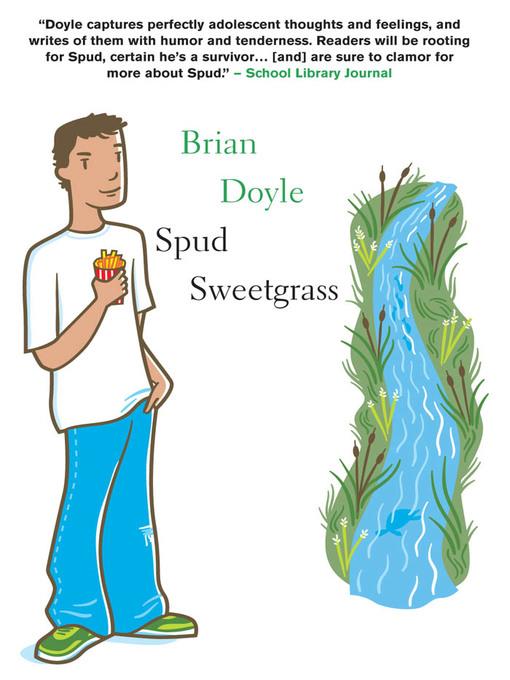
Spud Sweetgrass
فرمت کتاب
ebook
تاریخ انتشار
1992
ATOS
4.8
Interest Level
4-8(MG)
نویسنده
Brian Doyleناشر
Groundwood Books Ltdشابک
9781554980420
کتاب های مرتبط
- اطلاعات
- نقد و بررسی
- دیدگاه کاربران
نقد و بررسی

September 1, 1996
Gr 6-9-In this story, Spud Sweetgrass must deal with his father's death, his mother's withdrawal into grief, his expulsion from school, his new girlfriend, and a mystery about the pollution of the Ottawa River. Doyle conveys a sense of place and the cultural diversity of the Canadian city. Humorously weaving many other contemporary issues into the novel, the author paints a vivid, touching portrait of one boy's coming-of-age. Spud, nicknamed that because of his job working for Mr. Fryday on a chipwagon, is part Irish, part Aboriginal, and part lots else. He's pretty much on his own; his mother doesn't even realize he's been expelled. When the school finally calls to reinstate him, she realizes how abandoned her son has been. With grit, however, he has managed to confront a polluter, get fired then rehired, and deal with his own acute sense of loss. Doyle captures perfectly adolescent thoughts and feelings, and writes of them with humor yet tenderness. Readers will be rooting for Spud, certain he's a survivor. The very few Canadian idioms in no way affect the accessibility of the novel for U.S. readers, who are sure to clamor for more about Spud.-Connie Tyrrell Burns, Mahoney Middle School, South Portland, ME

June 1, 1996
%% This is a multi-book review: SEE also the title "Spud in Winter." %% Gr. 5^-8. John Sweetgrass, nicknamed Spud because he sells chips (french fries) from a chipwagon), has a mouth that sometimes gets him into trouble. He also seems to have a yen for mystery. In "Spud Sweetgrass," the first of two new adventures, the boy and his friends Connie Pan and Dink the Thinker attempt to find out who is dumping chip-smelling grease into the Ottawa River. The cast is richly detailed, including Connie's Chinese mother, who calls Canadians "Bignoses," and Spud's mother, so grief stricken by the death of Spud's father she doesn't realize Spud is grieving, too. Many wryly humorous touches enliven the first episode, but funny moments are fewer in the sequel, in which Spud witnesses a man being gunned down. Once again, Doyle enriches his story with plays on names (the villain's name is B. Faroni), and alert readers will catch some Shakespearean references, including a replay of the balcony scene from "Romeo and Juliet." Unfortunately, the short sentences used so effectively in the first book are overused here, creating a choppy rhythm and distancing the reader. Despite the se-quel's problems, these funny page-turners will be good choices for reluctant readers. ((Reviewed June 1 & 15, 1996))(Reprinted with permission of Booklist, copyright 1996, American Library Association.)

























دیدگاه کاربران